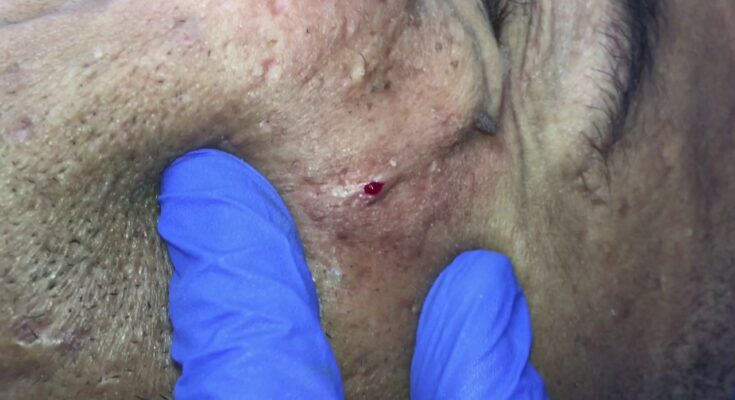Managing ethnic skin—which refers to skin types typically associated with African, Hispanic, Asian, and Middle Eastern descent—requires understanding its unique characteristics. These skin types tend to have higher melanin content, which gives them more natural protection against UV rays but also presents certain challenges like pigmentation issues, acne scars, and hyperpigmentation. Here’s a comprehensive guide on how to manage ethnic skin effectively:
1. Understanding Ethnic Skin Characteristics:
- Increased Melanin: Ethnic skin generally has higher melanin levels, which means it’s more prone to hyperpigmentation (dark spots) and post-inflammatory hyperpigmentation (PIH) after breakouts.
- Oily to Combination: Many people with ethnic skin have oilier skin types, particularly in the T-zone, which can lead to clogged pores and acne.
- Scarring & Keloid Formation: Ethnic skin can also be more prone to keloid scars (raised scars) or hypertrophic scars from acne or injuries.
2. Gentle Cleansing:
- Use a Mild Cleanser: Avoid harsh, stripping cleansers. Look for gentle, hydrating cleansers with no sulfates to maintain the skin’s natural moisture balance.
- Double Cleansing: Consider using an oil-based cleanser first to break down makeup, sunscreen, and excess oils, followed by a gentle water-based cleanser to cleanse deeper.
3. Hydration & Moisturizing:
- Hydrating Products: People with ethnic skin types often need moisture without clogging pores. Look for non-comedogenic moisturizers, and consider formulations with hyaluronic acid, glycerin, or ceramides for hydration.
- Oil-Free or Lightweight Moisturizers: If your skin is oily, opt for oil-free or gel-based moisturizers that hydrate without adding extra oil.
4. Sun Protection (SPF):
- Daily Sunscreen: Ethnic skin is more prone to hyperpigmentation and melasma, especially after sun exposure. Sunscreen is crucial to prevent further darkening of spots and to protect against skin cancer.
- Broad-Spectrum SPF: Choose a sunscreen with broad-spectrum protection (UVA and UVB) and a minimum SPF of 30 or higher. Look for physical sunscreens with zinc oxide or titanium dioxide if you’re concerned about white cast, or opt for tinted sunscreens that blend well into darker skin tones.
5. Acne Treatment & Prevention:
- Salicylic Acid & Benzoyl Peroxide: These are effective ingredients for acne. However, use them cautiously, as they can sometimes cause dryness or irritation. Incorporate them gradually into your routine.
- Retinoids: Retinoids, like retinol or adapalene (Differin), help promote cell turnover and prevent clogged pores, but they can be drying. Start with lower concentrations and use them at night.
- Gentle Exfoliation: Regular exfoliation with mild chemical exfoliants (like AHAs or BHAs) can help prevent clogged pores and hyperpigmentation but should be done with care to avoid irritation.
6. Hyperpigmentation & Dark Spots:
- Vitamin C: Vitamin C is an excellent ingredient for brightening and even skin tone. It helps inhibit melanin production, reducing the appearance of dark spots and hyperpigmentation.
- Niacinamide: Niacinamide (vitamin B3) can help lighten hyperpigmentation and even out skin tone, making it a great choice for ethnic skin.
- Alpha Arbutin & Licorice Extract: Both are known to help lighten dark spots and discoloration without irritating the skin.
- Chemical Peels: Glycolic acid or lactic acid peels can help exfoliate the skin and fade dark spots but should be done cautiously to avoid irritation.
7. Avoid Harsh Scrubs & DIY Treatments:
- Harsh physical scrubs or DIY remedies (like lemon juice or baking soda) can cause irritation and worsen pigmentation, particularly on darker skin tones. Stick to gentle exfoliating products with proven ingredients.
8. Skin Tone & Brightening:
- Even Skin Tone: If you’re seeking a more even skin tone, look for brightening products that target pigmentation without harsh bleaching agents. These may include serums or treatments containing kojic acid, azelaic acid, or retinoids.
9. Managing Scars (Hyperpigmentation & Keloids):
- Scar Healing: If you have acne scars or keloids, be patient, as ethnic skin can take longer to heal. Avoid picking or squeezing blemishes to prevent scars from forming.
- Silicone Gel Sheets & Scar Creams: For raised scars or keloids, using silicone gel sheets or scar creams can help reduce the appearance over time. Consult with a dermatologist if you’re prone to keloids for tailored treatment.
10. Diet & Lifestyle:
- Balanced Diet: While diet doesn’t directly cause acne, it can affect your skin. Eating a balanced diet rich in antioxidants, omega-3 fatty acids, and vitamins (especially vitamins A, C, and E) can promote healthy skin.
- Hydration: Drinking plenty of water helps maintain skin elasticity and hydration, promoting healthier skin overall.
- Stress Management: Stress can exacerbate skin conditions like acne and eczema, so managing stress through exercise, meditation, or hobbies is essential.
11. Consulting a Dermatologist:
- If you’re dealing with persistent acne, hyperpigmentation, or scarring, visiting a dermatologist is essential. They can offer treatments like chemical peels, laser therapy, or prescription medications that are tailored to your skin’s unique needs.



